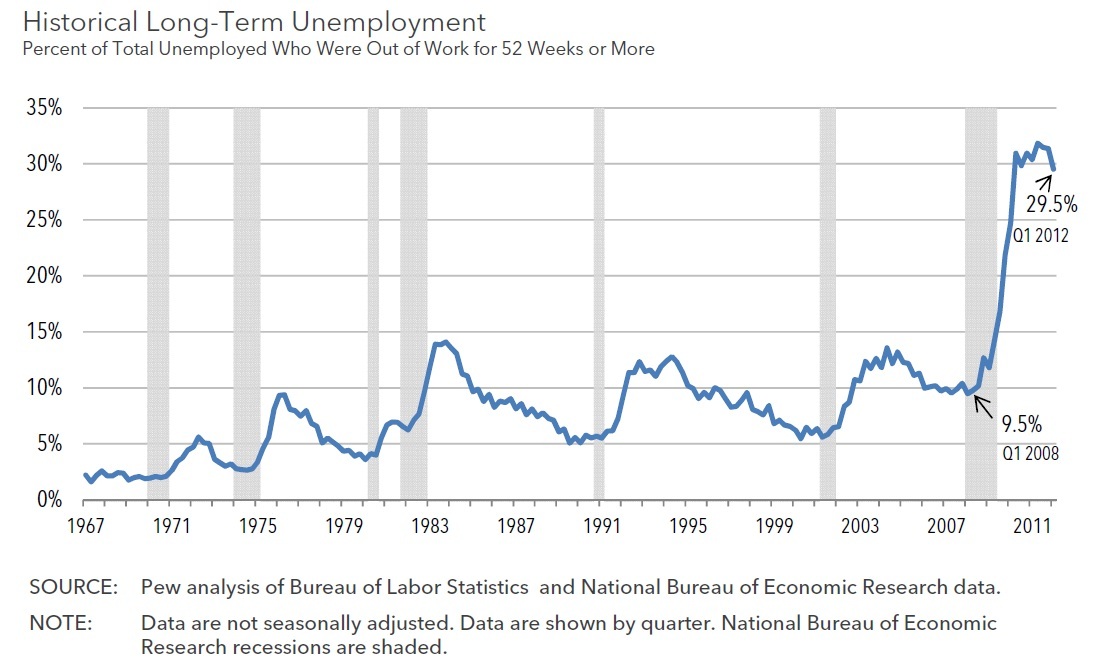
Of the 13.3 million Americans who were unemployed in the first quarter of 2012, a staggering 29.5% have been out of work for 52 weeks or more (the official definition of long-term unemployment). As the Pew Charitable Trusts point out, that works out to roughly 3.9 million people, or more than the population of Oregon.
James Pethokoukis of the American Enterprise Institute blog has posted a devastating graph depicting the spike in long-term unemployment since President Barack Obama took office.
Since 1967, the previous 1983 high for long-term unemployment rate was less than half what it is today under Barack Obama.
Economists say high long-term unemployment rates are especially dangerous. As time out of work increases, a worker’s skills and knowledge of new technologies grow rusty, making them less attractive to employers and therefore less likely to re-enter the workforce. As Ingrid Schroeder, director of the Pew Fiscal Analysis Initiative at the Pew Charitable Trusts explains:
“When you look at the overall long-term unemployment rate in early 2008, it was about 9.5 percent. And when you look at where we are today, at 29.5 percent, you expect it to be worse [than where it was at the beginning of the recession], but it’s more than triple where it was at the beginning of the Great Recession.”
The societal implications of long-term unemployment are also unsettling, as high joblessness increases an individual’s willingness to cede personal liberty to an authoritarian leader. A study by Duha Tore Altindag of Auburn University and Naci H. Mocan of Louisiana State University found that “personal joblessness experience translates into negative opinions about the effectiveness of democracy and it increases the desire for a rogue leader.” Liberal Yale University economist Robert Shiller summarized the study this way:
They looked at a survey question inquiring whether “having a strong leader who does not have to bother with Parliament or elections” is a good thing. In the United States, being jobless increases the propensity to agree by about 11 percentage points, to 38 percent from the sample mean of 27 percent, after controlling for other factors like income and education.
In short, the longer a person is out of work and feels hopeless about ever getting a job, the more willing they are to submit to authoritarian leaders.

COMMENTS
Please let us know if you're having issues with commenting.